Why Do Birds Chirp at Night? 9 Reasons for This Behavior
Last Updated on
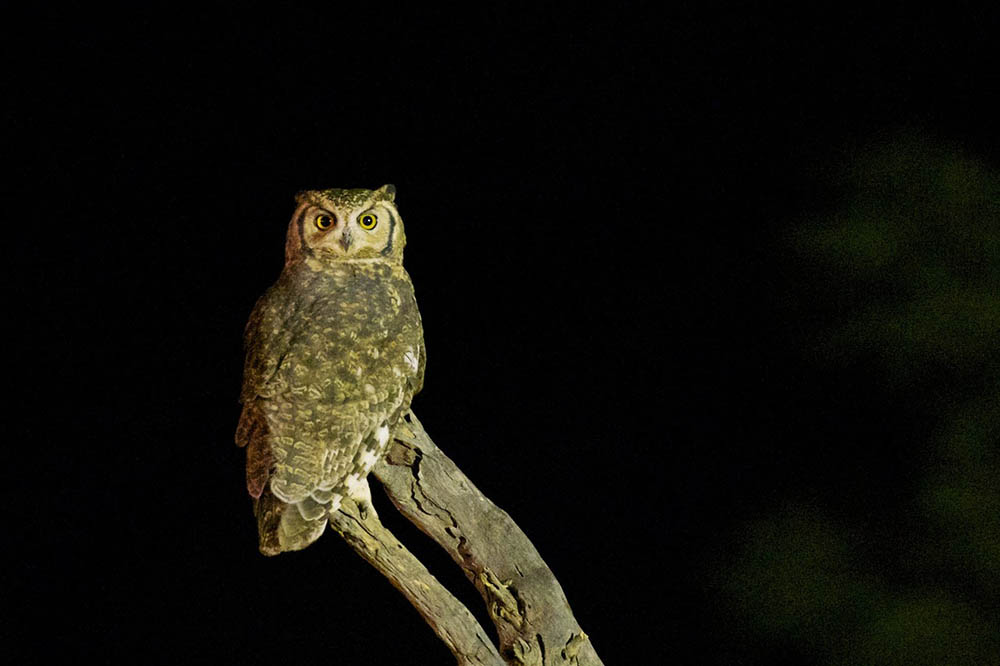
There are few things in life as beautiful and stress-relieving as birdsongs. Their beautiful melodies often symbolize the start of spring, and many people love beginning their day with the sweet sounds of the neighborhood birds to wake them up.
Not all bird songs are welcomed with open arms, though. If you find yourself lying in bed at night tossing and turning, unable to go to sleep because of your neighborhood flocks’ incessant vocalization, you’re probably feeling quite frustrated.
While there’s nothing you can really do to stop their chirping, it might help to know some of the reasons why they’re being so noisy in the first place.
Keep reading to find nine potential reasons you hear these nocturnal vocalizations.

The 9 Reasons Why Birds Chirp at Night
1. They’re Claiming Territory
Like many other creatures in the animal world, birds can be very territorial. When they find a place where they feel comfortable and can survive, they want to protect it as much as they can. Chirping is a bird’s way of letting other birds or creatures know that the territory they’re in belongs to them.
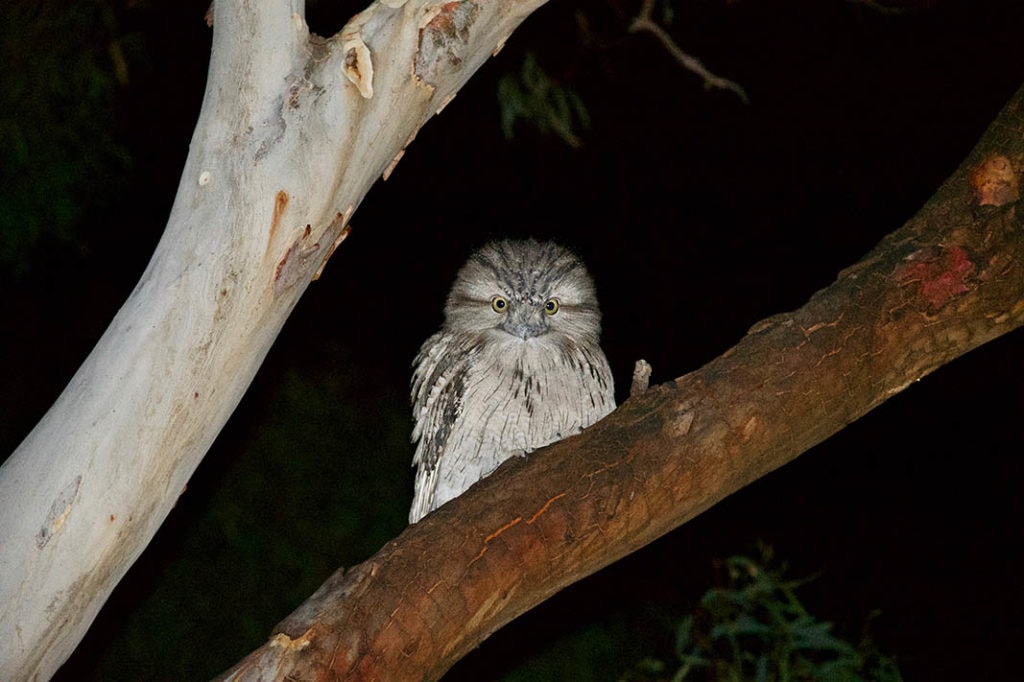
2. They’re Seeking Mates
Birds chirp at all times of the day when they’re looking for mates. You might notice this behavior in specific species of birds like cardinals or mockingbirds as other species use dances to attract mates.
It is usually male birds that will chirp beautiful sounds to try to attract a female mate. This behavior is common for most nocturnal birds but it’s seen sometimes in diurnal species as well.
Most birds breed in the springtime, though. So, if you’re hearing chirping at night in other seasons, it will likely be for another reason than looking for a mate.
3. They’re Sensing Danger
There are a lot of animals that see birds as prey and, as such, most birds will be overly cautious of their surroundings and will be able to discern quickly if danger is afoot.
When birds feel threatened, they will become very noisy and will chirp incessantly. They will chirp if the aggressive behavior of their predators makes them fearful and distressed. Their chirps are not only to try to scare away their predators, but the noises also act as an alarm to alert other birds in the vicinity of the danger.
It’s not only the presence of predators that makes birds feel they’re in danger. Loud noises, nest shaking, or even sudden bright lights can cause a similar reaction.
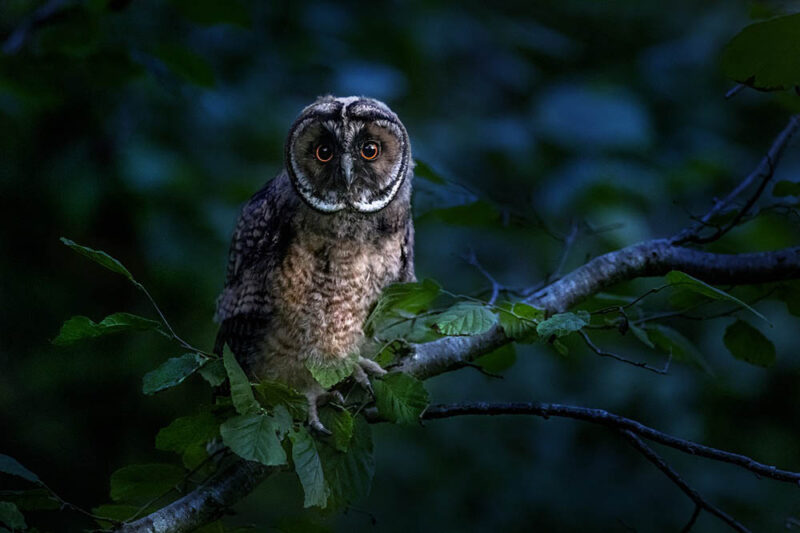
4. They’re Proclaiming Victory
Birds, especially those who are very hungry, will sometimes chirp to express their delight and celebration after finding food. If birds are in a flock together and one of them finds a source of food, they’ll often chirp to get the attention of their flock-mates so they, too, can enjoy a meal.
If there are several birds around a food source, they may start chirping and squabbling as they fight over the food.
5. They’re Disoriented
There was once a time when the world went completely dark at night. Thanks to urbanization, though, many birds’ territories are being encroached upon by cities growing rapidly into areas that the birds once called their own. With this growth comes inevitable light pollution. A sudden influx in bright lights in the bird’s habitat can not only be disorienting but it can also affect the birds’ sleep-wake cycles. They may believe the artificial lighting is the signal that a new day is upon them, and they begin chirping to signal this new day.
Some bird experts also believe that the increase of sounds in cities during the day makes it difficult for birds to communicate with one another.
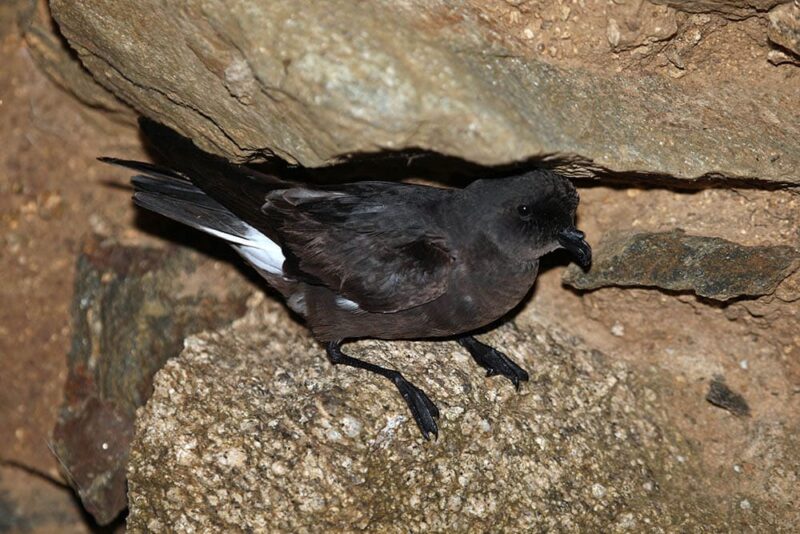
6. They’re Baby Birds
Baby birds are not able to take care of themselves, so they rely on constant protection and supervision from their parents. Their parents are not always able to be by their side, however, as they need to rummage for food for themselves and their hatchlings. Whenever these baby birds are hungry or scared and are left alone, they will chirp to try to get the attention of their parents and to alert nearby birds that they need to be taken care of.
7. They’re Communicating
Some bird species will vocalize at night as a way of communicating with other birds.
If a bird is lost from its flock, it may start chirping as a way of getting attention from members of its flock. This type of chirping can go on for a long time if the bird is unable to find its flock mates.
When gathered together, some species will chirp at the same time as a way of getting an idea of the size of their flock.
When birds are migrating together, chirping allows them to communicate with each other so they can stay safe and stay together. Many bird species choose to migrate at night. There are four main reasons for this:
- The stars and moon can help with birds’ navigation skills
- The atmosphere is more stable so they can keep on a steady course
- Cooler temperatures make long flights more bearable
- It’s safer from hawks, cats, and other daytime predators
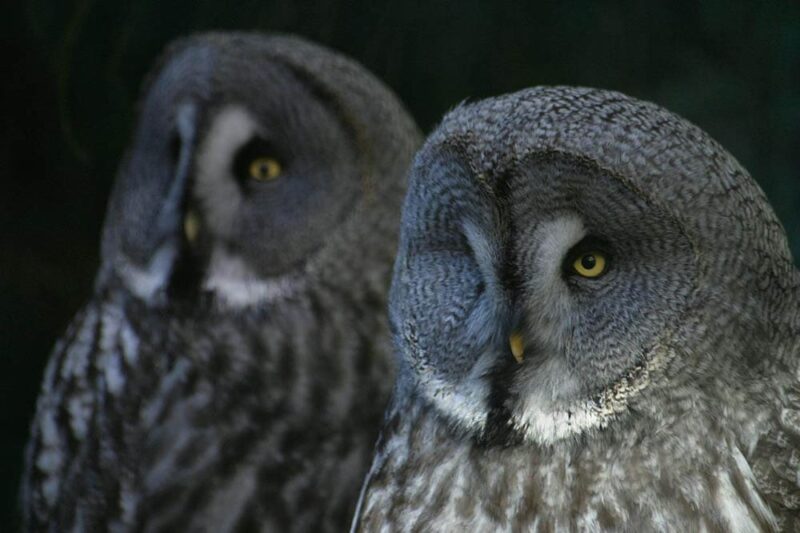
8. They’re Practicing Their Songs
Birds are known for their beautiful and melodic calls and chirps but they’re not all born with the ability to sing in such a way. Just as with humans, birds must practice their chirping before they become professionals with their voices. Without the ability to sing, birds may struggle socially and may not survive as long.
Studies suggest that birds that sing early in the morning will perform better throughout the day. They might choose to practice their singing so early as there’s less wind to distort sound or since there’s very little light in the early morning hours, they can’t forage so their singing becomes an act of boredom.
9. They’re Nocturnal
Not all birds are diurnal (most active in the daytime). There are many species whose biological rhythm makes them primarily active throughout the hours of darkness. These nocturnal birds will typically start their daily singing practice when the sun sets.
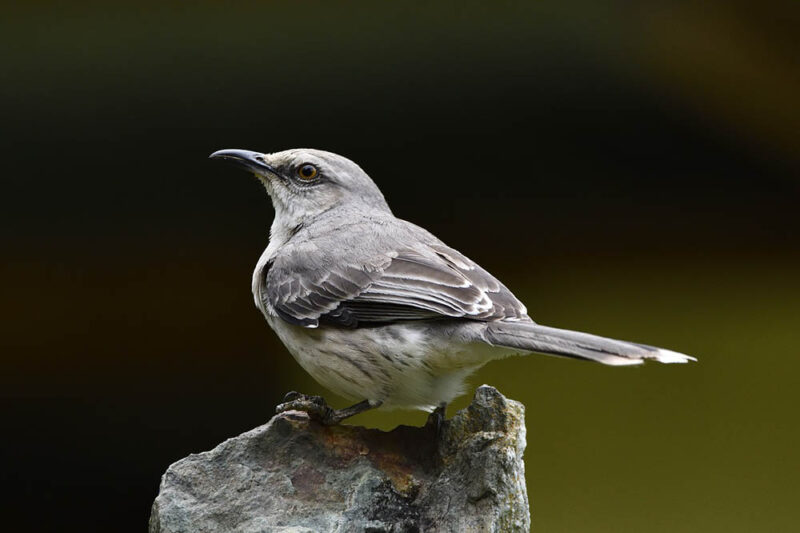

What Birds Chirp at Night?
There are many different species of birds that do their best singing after dark. Here are some of the most common birds whose calls you’ve probably heard as you’re laying in bed:

Conclusion
While most of us are accustomed to waking up with the sounds of birds chirping to start our day, birds singing at night are not as rare as one might think. Now that you know some of the reasons your neighborhood birds might be vocalizing so much in the evening, you might be able to go to sleep a little easier knowing they’re not just serenading you to spite you. It’s just in some species’ nature to do their calling during the dark hours.
Featured Image Credit: ilangr, Pixabay
About the Author Chantelle Fowler
Chantelle grew up on the prairies in Canada surrounded by animals. Chantelle, her husband, and their child take great pride in being great animal parents. When Chantelle isn’t snuggling her cats on the couch or taking pictures of them being hilarious, she’s outside exploring in the Rocky Mountains, binging the same shows on Netflix over and over, and reading about whatever random topic pops into her brain.
Related Articles:
10 Types of Hummingbirds in Arkansas (With Pictures)
8 Types of Hummingbirds in Nebraska (With Pictures)
5 Types of Hummingbirds in Idaho (With Pictures)
3 Types of Hummingbirds in Mississippi (With Pictures)
8 Types of Hummingbirds in Kansas (With Pictures)
5 Types of Hummingbirds in West Virginia (With Pictures)
5 Types of Hummingbirds in Ohio (With Pictures)
Where Do Nuthatches Nest? Nuthatch Nesting Habits Explained
